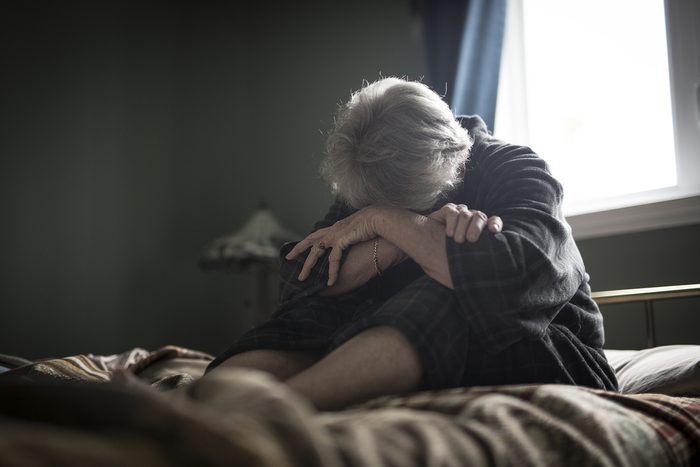
The Sad Collective
Early in 2016, friends and coworkers Vasiliki Marapas and Meghan Yuri Young were both going through difficult breakups. “I was such a mess,” says Marapas. “I was going into the office every day and crying at my desk.” At the same time, Yuri Young was trying to come to terms with the end of her marriage and found it difficult to get out of bed each morning. Though both women were dealing with “mental health roadblocks,” neither felt it was okay to admit they were struggling. They banded together and, on April 1, launched a blog, Facebook page and Instagram account, The Sad Collective, with the tagline “We’re all in this together.” Their hope is to raise awareness for mental health and make it acceptable and comfortable for anyone to talk about their issues, no matter where they fall on the mental health spectrum. This year, they’ve partnered with the Centre for Addiction and Mental Health (CAMH) to promote One Brave Night, a fundraiser that aims to inspire hope for the one in five Canadians living with mental illness.
Want to do your part? Check out these 10 myths and make sure you don’t perpetuate them.

Lie #1: Mental health only affects certain people.
While mental illness may only directly impact a number of people, everyone has been affected by stress, change, negative thought patterns and any other number of factors. “It’s important to realize there’s a spectrum,” says Marapas. “There’s everyday mental health. There’s the grief, loss and heartbreak part of the spectrum—which is where Meghan and I fit in. Then there are also a variety of mental illnesses.”

Lie #2: Mental health is less important than physical health.
“If you have a physical illness or disorder, people rally,” says Yuri Young. “But when you have a mental illness, it’s hard to quantify and express.” That makes it easier to dismiss. But the fact is mental health needs maintenance in the same way that physical health does – always taking care of yourself. If someone’s experiencing bumps on their ongoing mental health journey, they deserve the same level of care as someone with a physical illness.

Lie #3: If you talk about your struggles, you want pity or attention.
While it may not be appropriate to discuss all of your personal problems with your boss, it’s important to find someone who can lend a supportive ear when things get to be too much—or to be that ear for a friend, family member or coworker that needs compassion. “I feel like we live in a cult of optimism where there’s so much pressure to be doing well and putting your best foot forward,” says Marapas. “But that’s not realistic, and people feel like they don’t measure up.” The message: Find someone to share your struggles with and try to remember that you don’t have to be OK all the time.

Lie #4: People with mental health issues are lazy.
Lazy is an awful word, because what may be easy for one person (getting out of bed, going for a run and clocking a 12-hour work day) could be excruciatingly difficult for another person. Whether you have a mental illness or not, you need set your own guidelines and boundaries for what you can and can’t do on any given day, and not worry about others’ opinions. “We tend to blame ourselves when we can’t do everything we set out to do or can’t meet every obligation,” says Marapas. “I think it’s okay to not feel up to doing something. You shouldn’t have to feel guilty.”

Lie #5: Just try harder to control how you feel.
We like to believe that good mental wellbeing is all about making the right choices. If you go for a walk, get more fresh air, eat healthy and meditate, you’ll be able to monitor your mental health. But genetics, brain chemistry, upbringing, ingrained thought patterns, and more, can still impact mental health. And sometimes it’s not as easy as going for a walk to snap out of whatever funk you’re in.

Lie #6: You just have to snap out of it.
“With physical health, there’s a certain level of standardization,” says Marapas. “If you’re sick, you take ‘medication X’ and it will make you better. But mental health is so deeply personal. Something that might work for you might be disastrous for me.” Because your mom tried cognitive behaviour therapy and it worked for her, doesn’t mean that same type of treatment will work for you.

Lie #7: Mental illness is trending.
By disregarding the very real problems that can come with some forms of mental illness such as suicide, addiction, inability to hold down a job, broken relationships and more, it can be easy to dismiss mental illness as a glamorous lifestyle choice preferred by romantic, creative geniuses such as Virginia Woolf and Vincent Van Gogh or bad boys like Hunter S. Thompson and Ernest Hemingway. But mental illness is not a choice and the reality is anything but glam for most people.

Lie #8: If you have a mental illness, you will never amount to anything.
People who struggle with their mental health are everywhere, and most lead fulfilling lives by their own standards and even by those of society—especially after treatment. Even if you have a mental illness and are struggling with less-than-desirable symptoms, it’s possible to re-frame your perspective. For example, “You may have social anxiety that increases your empathy,” says Marapas. Or, perhaps you’re incredibly impulsive, which means you often seize the moment. You may need to work on yourself, but don’t forget the positive aspects of your personality and the traits that make you who you are.

Lie #9: People with mental illness are all the same.
It’s easy to imagine that someone with mental illness will exhibit the same symptoms as a homeless man talking to himself on the street, but every single person with mental illness is different, even if they have the exact same diagnosis. Your boss could secretly suffer from depression; your best friend might have borderline personality disorder; and yes, that man on the street might have a condition as well. But people that have mental illnesses can’t automatically be placed into the box of “unstable,” “irrational,” “crazy” or “dangerous.”
Fact: According to the American Psychiatric Association, only three to five percent of firearm assaults are linked to people with serious mental illness and those with mental illness are more likely than others to be the victim of a crime.

Lie #10: Only people with diagnosed mental illnesses need therapy.
“There’s this stigma in society that you only go to therapy when things are really bad,” says Yuri Young. But if you can find a free counselor, or can afford a psychotherapist or psychologist, or even attend group meetings, you can work on training your brain to better handle emotions and situations—both positive and negative—that arise in your life. “It’s about being proactive and having the tools so that if something should happen, you’ll be prepared,” says Marapas.
